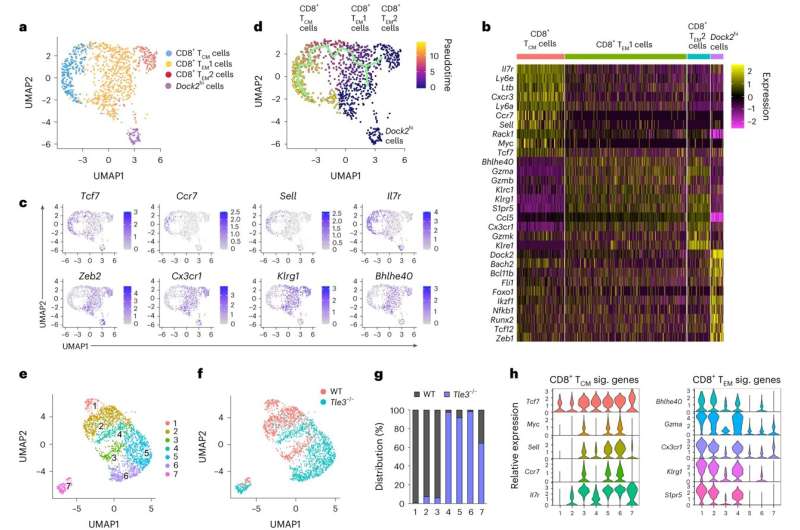This article has been reviewed according to Science X's editorial process and policies. Editors have highlighted the following attributes while ensuring the content's credibility:
fact-checked
peer-reviewed publication
proofread
Research uncovers Tle3 protein's role in enhancing memory T cells

The Xue Lab at the Hackensack Meridian Center for Discovery and Innovation (CDI) has made another breakthrough in better understanding and potentially modulating the immune system to fight diseases.
The insights into a specific protein and how it regulates the training and efficacy of central memory T cells are published by Hai-Hui (Howard) Xue, a member of the CDI, and colleagues in the journal Nature Immunology.
The immunological implications could produce better vaccines and cancer treatments in the future, according to the Xue lab, which is also part of the Institute for Immunologic Intervention (3i) at the CDI.
The molecular focus is on the transducin-like enhancer (Tle) family of proteins. Specifically, the team's inquiry homed in on Tle3, and how it exactly functions in the training of T cells.
Their observations in preclinical models, both ex- and in-vivo, showed consistently that Tle3 functioned as a mediator and regulator of complex interactions which allow antigen-experienced T cells to be specialized in response to foreign threats—and thereby become central memory T cells that are more efficacious in protection.
By releasing the "brakes" of Tle3's regulation, Xue and the team were able to accelerate the formation of central memory T cells and hence supercharge immune response.
The implications could allow future manipulation of the immune system—by releasing the brakes and unleashing T cells to faster and more forcefully respond to threats, including both infectious disease and cancer, according to the paper.
"In sum, Tle3 uses dual functions in gene regulation guard (effector memory) T cell lineage fidelity, and releasing the brake mediated by Tle3 facilitates the formation of (central memory) T cells with better durability and more robust recall capacity," conclude the authors.
More information: Xin Zhao et al, The transcriptional cofactor Tle3 reciprocally controls effector and central memory CD8+ T cell fates, Nature Immunology (2024). DOI: 10.1038/s41590-023-01720-w


















